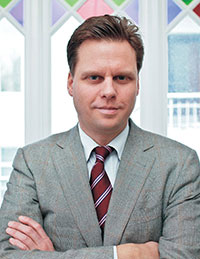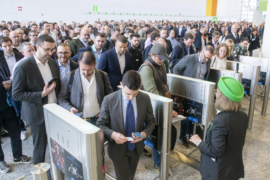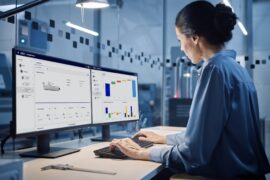Arni Oddur Thordarson, former chairman of Marel, has been named chief operating officer of the Gardabaer, Iceland-headquartered manufacturer of industrial processing equipment for the fish, poultry and meat sectors. Consequently, roles within the company’s board of directors have changed as Asthildur Otharsdottir has taken over as chairman and Arnar Thor Masson has assumed the job of vice chairman.
 “Recent operational results have not reflected our full potential,” says Arni Oddur Thordarson, the new chief operating officer of Marel. “We have to strive for operational excellence throughout the organization with greater focus on aligning execution with strategy.”Otharsdottir, making the announcement in a statement issued on November 1, commented: “We are fortunate that Arni, who has been instrumental in shaping Marel’s strategy during his eight years as chairman, has accepted the position. He has broad international industrial experience and knows the company and its markets inside out.”
“Recent operational results have not reflected our full potential,” says Arni Oddur Thordarson, the new chief operating officer of Marel. “We have to strive for operational excellence throughout the organization with greater focus on aligning execution with strategy.”Otharsdottir, making the announcement in a statement issued on November 1, commented: “We are fortunate that Arni, who has been instrumental in shaping Marel’s strategy during his eight years as chairman, has accepted the position. He has broad international industrial experience and knows the company and its markets inside out.”
Outgoing CEO Theo Hoen, who has been with Marel and Stork Food Systems for 27 years, served the company as chief operating officer since early 2009.
Thordarson, who holds an MBA degree from IMD Business School in Switzerland, has extensive experience in international commerce. He has served on the board of directors at Marel since 2005, most of the time as chairman.
Meanwhile, the company recently released third quarter sales figures. Revenues for the first nine months of 2013 amounted to EUR 493.4 million, a 7.9% decrease compared to the same period in 2012. This reportedly reflects “challenging market situations and a slower recovery than originally expected.” Year to date operating profit (EBIT) was 7.2% of revenues, which was below the company’s 10-12% target for the full year.
Market conditions remain challenging, though there are signs of improvement. While economic recovery seems to be slowly gaining momentum in North America, the Eurozone – where a high unemployment rate remains stuck at over 12% – is still fragile. Elsewhere, signals from emerging markets remain mixed with positive future prospects.
Marel’s revenues from service and spare parts sales increased in Q3, while larger projects continue to be an uphill climb. Improved profit margins during the quarter showed progress in operational efficiency and cost control, despite delays of large projects.
Full year revenues for 2013 are expected to decline by 6-8% compared with the previous year, however, moderate growth of revenues is anticipated next year on the heels of market recovery.
Outgoing CEO Hoen commented: “Marel is performing on a reasonable level considering market conditions. The turnaround has been slower and more gradual than what we have seen before and had previously expected. The lack of investments in large projects is affecting our revenue base, but we remain confident that once the market bounces back we will capture increased demand with investment need building up.
‘We saw this happen in 2009, when food processors delayed modernization of their equipment because of the economic uncertainty,” he continued. “Then in 2010 we saw it bounce back as the underlying demand for protein continued to grow, as is the case now. In the meantime, we are utilizing our extensive sales and service network to generate business by increased and better service to customers. We remain optimistic about the future prospects, and that’s why we will continue to maintain our network and a good level of investment in R&D while keeping our focus on operational efficiency.”
Orders received amounted to EUR 163.3 million in the third quarter, compared to EUR 159.1 million in Q2. The order book amounted to EUR 138.3 million at the end of the third quarter compared with EUR 131.8 million at the end of Q2 [Q3 2012: EUR 151.4 million], representing an increase of around 5% compared with the last quarter.
This development reflects gradual recovery in Marel’s major markets. However, capturing that growth with signed orders is still somewhat restrained by the absence of large projects as many food processors
hesitate to invest in a difficult market environment. Investment decisions now take longer than before to reach.
This applies to the food processing equipment industry in general, and Marel believes it is not losing market share. The company’s outlook for writing up new business is positive, as the protein industry is expected to grow steadily in the coming years and the need for investments is building up.




